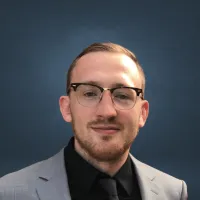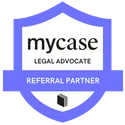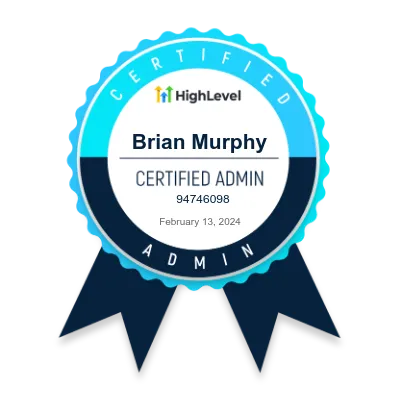
From Engineering to Family Law
Leveraging Engineering Expertise for Effective Mediation and Client-Centered Services
Law Firm Growth Podcast Episode 21: Market like an MBA for 10X growth with Elizabeth Yang
Narrator: [00:00:00] Welcome to the law firm growth podcast, where we share the latest tips, tactics, and strategies for scaling your practice from the top experts in the world of growing law firms. Are you ready to take your practice to the next level? Let's get started.
Jan Roos: Hey, everybody, welcome back to the law firm growth podcast.
Jan Roos: I'm your host Jan Roos, and I am here today with Elizabeth Yang. So Elizabeth is the founder and owner. Of the law and mediation offices of Elizabeth Yang. We're interviewing her today because she is an absolutely fantastic growth. 999 percent growth over the last three years. I know you were probably killing yourself for that last 1%, but I'm still impressed regardless.
Jan Roos: But anyways, welcome to show Elizabeth. We've got kind of the high level overview, doing a little bit of research on the firm. It's super interesting. I definitely want to dig into how you got to where you are. Would you mind just getting us started off with kind of the story of how you got to where you are today?
Elizabeth Yang: Yeah, sure. I actually founded [00:01:00] my own practice in 2011. And back then it was a partnership and focusing mainly on intellectual property law and business law. In 2016, I ventured out on my own and started a second division in the firm that focuses mainly on family law and estate planning. Today, we have the two divisions with a total of 10 attorneys and we span mainly across Southern California.
Elizabeth Yang: We have offices in downtown LA and the city of Irvine. To cover Orange County, also in Monterey Park, and we just recently opened up a Beverly Hills location.
Jan Roos: Okay, well that's definitely exciting. I mean, ten attorneys in three years. I'm sure there's some people probably running a solo practice right now that could only imagine doing that in that short of a time.
Jan Roos: An interesting thing that I noticed, generally it's very rare to find, so you guys kind of have the business and intellectual property, B2B type law, but also kind of married, well, literally in some cases, with a family interest in state's law. How [00:02:00] did you guys come up and like, what kind of informed the decision of where you guys were going to branch?
Elizabeth Yang: So my background is electrical engineering and computer science. I used to work as an engineer at Raytheon designing radar systems for the B 2 bomber. And I've also worked at NASA's Jet Propulsion Lab. So with the engineering background, it was only a smooth transition to intellectual property because most IP attorneys.
Elizabeth Yang: Especially those who specialize in patents have some kind of technical or engineering background. So IP was the normal transition from engineering to law. I then expanded into family law, funny enough, because I went through my own personal divorce, which lasted four years, and I published two books on this.
Elizabeth Yang: One is called The Big Secret. And the theme of that book is that challenges in life are blessings in disguise because if it wasn't for my own personal experience in family law court, I wouldn't have this thriving family law practice now. My second book is called [00:03:00] Stress Free Divorce. We specialize in mediation.
Elizabeth Yang: So we help couples that are going through one of the most difficult times in their lives. Try to settle issues outside of court.
Jan Roos: Yeah, that seems to make sense because you've got sort of the, I guess the professional background that led you to the IP stuff and then eventually it was sort of a personal bracket.
Jan Roos: Couple questions that I definitely have to follow on that. First of all, it's been something that I've seen a little bit and especially over the past couple years, you know, you definitely see a lot of negative perception in the market with people talking about, you know, your standard divorce litigation process.
Jan Roos: Obviously, a lot of people go through a lot of time and investment in billable hours to get this stuff done. And I've seen the mediation stuff come up more and more. Could you tell me a little bit what it's been like running a mediation practice? Did you guys ever do more of the traditional divorce litigation approach or what's that been like for you guys?
Elizabeth Yang: Yeah, absolutely. We do mediation, but we still definitely still do the traditional divorce litigation. We basically try to help the couples that are going through a divorce use mediation to see if we [00:04:00] can settle their issues outside of court first. Because divorce, like any other type of litigation, is very expensive, very time consuming, and costly.
Elizabeth Yang: So if they can settle their issues without fighting years in the court, then it's definitely better for both parties, and also for their kids, too, if there are kids involved. Of course, if they can't, and their differences are just too big, then we can still do litigation for them.
Jan Roos: Okay, gotcha. And I'm assuming this is probably similar to the process that you went through when you're going over the book.
Jan Roos: And kind of speaking on that too. So was this kind of related to why you ended up getting into this practice area? Was it, was the book kind of something that's leading the practice as far as getting people in the door?
Elizabeth Yang: No, we started the family law practice first, and then the books came subsequently because I wanted to share my story with a larger audience.
Elizabeth Yang: The book is just a bonus. Towards the end, uh, but we had the practice before that.
Jan Roos: Okay, gotcha. Yeah, it's a little bit top of mind. We actually recently recorded [00:05:00] an interview and for, for longtime listeners, that'd be our interview with Nick Raythel, but basically it was with somebody who was helping attorneys get their books published.
Jan Roos: So I guess the question is, you know, as far as since you guys ended up publishing the book, how have you been using that to end up growing the practice?
Elizabeth Yang: We give our books to many of our clients. Especially the ones who divorce, because they go in and it's a compilation of a lot of different personal stories and experiences.
Elizabeth Yang: So when they read about other people who have gone through what they've gone through, then they're more, I guess, hopeful that they can also settle their cases with mediation.
Jan Roos: Okay, so basically anyone's coming in through the book is going to have an understanding of what's actually possible. But I can imagine that's pretty helpful.
Jan Roos: You know, the mediation process seems to be kind of a more up and coming thing in the practice of law. Like, let alone, you know, people who are just average people walking around the street. All right, awesome. Switching gears a little bit. So, you know, been a lot of growth that's happening in the past couple years.
Jan Roos: Usually we're kind of talking about a couple different buckets of where this progress can come from stuff like marketing stuff, like [00:06:00] hiring systems, that kind of thing. What would you say is kind of like the primary driver of all the growth that you guys have experienced the past couple years?
Elizabeth Yang: Firm's model that we work by is we handle your case as if it were our own.
Elizabeth Yang: So when I went through my own divorce during the four years that it lasted, I switched attorneys five times. And with each attorney, I was pretty disappointed by the level of service I was getting. And these are attorneys that were either referred to me by people I knew or were, you know, who were pretty prominent in the community.
Elizabeth Yang: So I was thinking like, if this is the type of service that divorce clientele is getting, it's a pretty sad industry. So I was wanting to provide a service to clients where someone who has been through the discourse process, who knows how emotional and how difficult it can be to represent clients going through this process.
Elizabeth Yang: So when we help our clients, we really sit down with them and empathize with them and take their case [00:07:00] as if it were our own personal case, and I think they can really see. The, the amount of care that we have for each individual case. And that's why people keep coming back. Another aspect is we offer bilingual capability.
Elizabeth Yang: So I'm fluent in not just English, but also Mandarin. And our main headquarters is located at the city of Monterey park, where there is a huge population of Chinese speaking clientele, and there's really not that many Chinese. Family law attorneys in the community. So I think that we found an area where there was a need and supplied that need for them
Jan Roos: Yeah, that's awesome I mean like the niche practice is something that sums up to keep coming up with the more successful practices that we talked to so You guys kind of have you know, I mean, I guess it's you know, you're double niche So you're a mediation focus within the family law practice and also, you know community focus I can't imagine there's too many apples to apples competitors and like, you know, the la mandarin speaking community You So I'm guessing you guys probably get a ton of referrals.
Jan Roos: How else are [00:08:00] people finding you? What kind of marketing and advertising are you guys doing?
Elizabeth Yang: We actually do a ton of advertising. So I learned in the past when I got my law degree, I also got my MBA. So in business school, they say that the first five years of any business starting, 60 percent of your revenue should be going back into marketing so that you can continue growing your business at a, at a high speed.
Elizabeth Yang: So we actually invest a lot of our dollars back into marketing and some of the things we do are Google, Yelp, online advertising. We do Chinese TV and newspapers and radio ads. I'll do, you know, interviews and events, a lot of different networking organizations. Basically, any type of creative advertising I can think of, I will give it a try.
Jan Roos: Yeah. That's actually really refreshing to hear 60 percent is, uh, you know, this is the thing is we're usually having conversations about law firms with their marketing in, you know, in the context of, you know, we're, we're prospecting developing business for case you'll, I'm usually seeing numbers a lot closer [00:09:00] to 15 or 20%.
Jan Roos: And it's kind of funny because that 60 percent figure makes a lot of sense for people that are in early stages, but you know, it's, it's kind of untraditional because I feel like a lot of the people that are starting out in solos are primarily relying on those, those kind of like, you know, bootstrappy type things, you know, a lot of the less cost intensive kind of like networking type stuff.
Jan Roos: But, you know, if anyone's taking notes on this, I want to see how you're going to be growing, you know, close to a thousand percent in three years, maybe it could be a percentage of what you're applying back into your marketing. So, yeah, you mentioned doing a lot of testing of, of these different channels, is there anything like, you know, as far as stuff that has surprised you either in how effective or how ineffective it ended up being?
Elizabeth Yang: Right now, two most effective marketing channels, surprisingly, it's just Google and Yelp. And we actually get a huge ROI on that because we don't spend that much money on Google and Yelp. But I think one of the big things is having good reviews. So it's not that easy for. Uh family law attorneys to [00:10:00] get reviews because very rarely do clients want to put out of the public domain That you know, they hired a family law attorney to handle the divorce for them.
Elizabeth Yang: It's a very personal event in their lives So most people don't want to Even write a review, even if we have excellent service, just because they don't want to disclose to the public about their divorce. So it is hard for us to get reviews, but the ones we do get really helps a lot because I think a lot of times nowadays when people look for service providers, they want to read reviews and read what prior clients said about them before they make a decision.
Elizabeth Yang: So having those reviews on Google and Yelp have really helped.
Jan Roos: Yeah, you're actually reminding me of something I read a little. A little bit earlier this week, it's kind of talking about, you know, the whole world has sort of become Amazon fied, right? You know, if you're going to be ordering a water bottle, you're going to be looking for the one that has the most reviews.
Jan Roos: I also saw a study pretty recently, and this is kind of a counterpoint to anyone who might have been considering this but is afraid of bad reviews. They did a psychological study and the actual factor that matters more than the [00:11:00] actual quality of the reviews, not to say that anyone should be slacking off in their own practice, but the quantity is actually kind of the determinants.
Jan Roos: If you had a, you know, four star person with a hundred reviews versus someone who's five star with five, usually people think about the four star or the hundred reviews as the more authoritative. You know, going by, if you don't mind me asking, you know, this review thing seems like a tough process. How have you guys managed to kind of push through that barrier and get people to do this consistently?
Elizabeth Yang: We've tried a lot of different services. There's a lot of companies out there that will create software to assist with the process. So that instead of asking someone to go on the website themselves, they'll send a quick link or a quick text and make the review process really simple for a client so that they can just do a quick link if they're not satisfied with the service.
Elizabeth Yang: They can leave some feedback and it won't go public, but if they are happy with the service, then they will be brought to a public link where they can post an honest review.
Jan Roos: Okay, awesome. So you guys are [00:12:00] getting some help from some like specific like software and services that are doing it. And then I guess sort of zooming out a little bit.
Jan Roos: It seems like you're super active on getting these new channels up and going. So is this something that you guys are managing in house? How are you guys executing all these channels or I guess getting ideas of where the next place you're going to try, try out some marketing spend is.
Elizabeth Yang: Right now, it's all in house, so I'm pretty much handling everything myself.
Elizabeth Yang: I plan to hire a marketing person for the firm soon, but for the time being, I'm very involved with social media. I post on Facebook, Instagram, LinkedIn on a regular basis. I just enjoy it. So you know, if something's going on in the firm, it's great marketing to just let everybody know about it and people love hearing news.
Elizabeth Yang: So it's not really ads, but it's true news regarding what's happening with the firm.
Jan Roos: Okay. Yeah, that's awesome. And then another thing for anyone who might be taking notes on this, this is kind of a theme that's popped up on, on previous episodes, but you know, there's this different categories of all the activity.
Jan Roos: That somebody can be [00:13:00] spending their calendar on and it sounds like what, you know, you've been focusing on Elizabeth's revenue generating activity, which is kind of reflecting the amount of revenue you guys have been able to generate. So no surprises there. It's pretty astounding as far as like kind of any sort of, you know, obviously we kind of mentioned getting the, you know, your education and getting the NBA together.
Jan Roos: It sounds like you have quite an advanced level of business relative to most of the attorneys who probably find themselves less successful after three years of practice. Do you have any sort of resources? Like, I don't know if you listen to books, podcasts, like, how do you kind of get your information on how to run the firm?
Elizabeth Yang: So I think one important mentality to have is to never stop learning. So every year I make sure a certain percent of my resources are all invested into education and personal development. I'll sign up for any type of workshops, including like transformational workshops or Tony Robbins seminars, or. MCLE classes, basically anything I can get my hands on.
Elizabeth Yang: I just keep reminding myself that life is a lifelong journey [00:14:00] of learning and to never stop growing. Like if you come from the mentality that, oh, I already know how to do this, then that's where you stop. You stop growing.
Jan Roos: Yeah, that's awesome. And are you a part of any sort of like communities or Ways to find kind of like my individuals to kind of get this sort of stuff solidified as you're on this like journey.
Elizabeth Yang: Yeah, you know, we're, we live in a day and age where we're pretty blessed to have so many different options and opportunities right at our fingertips every day. Going on social media, there's a ton of Facebook groups out there for any type of interest that anyone could be interested in. Organizations, there's a club for everything.
Elizabeth Yang: I myself. I'm very much into like giving back and volunteer work. So I sit on nine different nonprofit boards, including like the Southern California Chinese Lawyers Association, the LA County Bar Association, and all these different organizations. It gives you an opportunity to give back, but getting is in the giving.
Elizabeth Yang: So whenever you're giving back opportunities and other things just fall into place and fall into your lap. From [00:15:00] those organizations, I end up getting a lot of referrals too.
Jan Roos: Well, that's awesome. I mean, it's kind of like a twofer. You feel good about it, but also get, you know, it's never, never about to have something that helps the business.
Jan Roos: Now, quick switch of gears here. So another thing that's really fantastic to see is that, you know, in terms of the headcount, you guys have grown really fast. How were you able to find 10 people in there? I guess people sometimes have a hard enough time hiring one person over a period of three years. What kind of process did you get in place to be able to expand with quality people as fast as you did?
Elizabeth Yang: I would have to say that hiring people and managing people is probably the most. difficult part of my job is more difficult than marketing and advertising and everything else. I have a business coach that helps me see my blind spots when it comes to managing people. So I'm constantly learning through, through my coach.
Elizabeth Yang: And I take classes on the importance of company culture and strategizing and all different kinds of stuff. So it's a constant struggle and a work in progress, but I think [00:16:00] talking to a lot of other entrepreneurs and business owners, I realize I'm not alone out there. Retention is a huge problem for any entrepreneur.
Elizabeth Yang: But we have a pretty well organized interview process now, and we have good training in our company and we really take care of our employees. So we're able to retain good talent nowadays as compared to before.
Jan Roos: All right. Awesome. Kind of getting towards the end of the time we had scheduled. So I wanted to ask, what's the best way to get in touch with, would you like people to get in touch with you?
Jan Roos: Like what's the best way to find out more and get in touch with you, if that makes sense.
Elizabeth Yang: Yeah, absolutely. They can find us either through our website, which is www.yanglawoffices.com or they can call our office number, which is 877 492 452.
Jan Roos: Alright, awesome. Well, thanks. And anyone who's interested in reaching out, by all means, go ahead and reach out to Contact Elizabeth.
Jan Roos: Thank you so much for taking the [00:17:00] time, Elizabeth. Super appreciate it. For the rest of the listeners, this has been another episode of the Law Firm Growth Podcast,
Narrator: Thank you for listening to the Law Firm Growth Podcast. For show notes, free resources, and more, head on over to casefuel. com slash podcast.
Narrator: Looking forward to catching up on the next episode.




